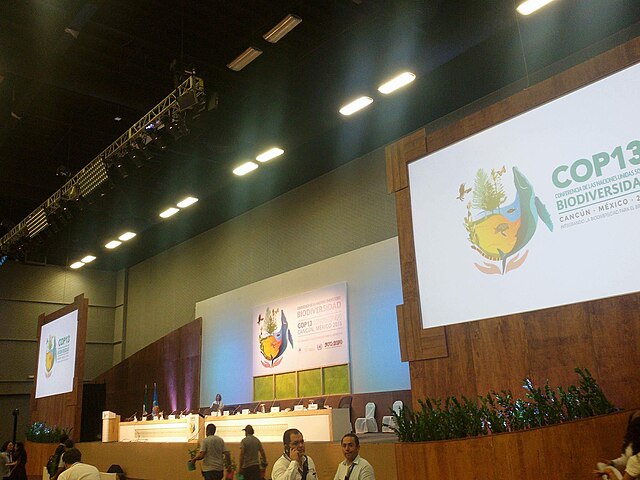Convention on Biological Diversity
The Convention on Biological Diversity (CBD), known informally as the Biodiversity Convention, is a multilateral treaty. The Convention has three main goals: the conservation of biological diversity ; the sustainable use of its components; and the fair and equitable sharing of benefits arising from genetic resources. Its objective is to develop national strategies for the conservation and sustainable use of biological diversity, and it is often seen as the key document regarding sustainable development.
COP13 Mexico meeting
COP15 Canada meeting
United Nations Environment Programme
The United Nations Environment Programme (UNEP) is responsible for coordinating responses to environmental issues within the United Nations system. It was established by Maurice Strong, its first director, after the United Nations Conference on the Human Environment in Stockholm in June 1972. Its mandate is to provide leadership, deliver science and develop solutions on a wide range of issues, including climate change, the management of marine and terrestrial ecosystems, and green economic development. The organization also develops international environmental agreements; publishes and promotes environmental science and helps national governments achieve environmental targets.
UNEP Conference on Ozone Layer in The Hague, 1988
UNEP Executive Director Inger Andersen at the UN Biodiversity conference, 2022
Presentation on climate finance by Søren E. Lütken, UNEP Senior Adviser, 2012
The Minister of State for Environment and Forests, Shri Jairam Ramesh, delivering the inaugural address at the Reporting Green: UNEP Media Workshop on Journalism and the Environment during the International Year of Forests, 2011






